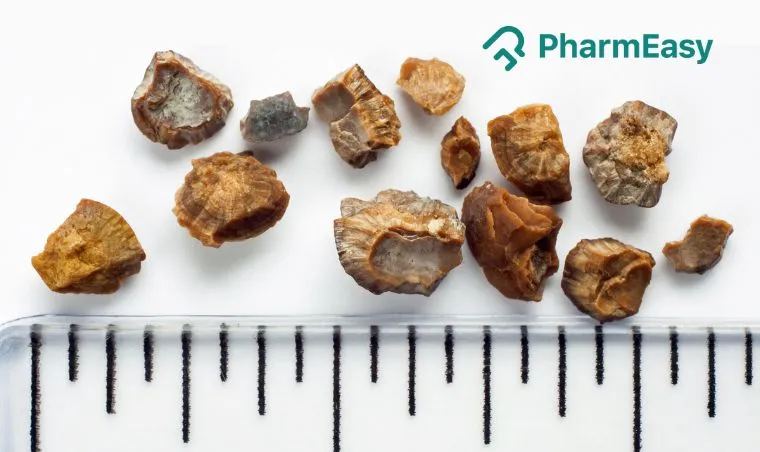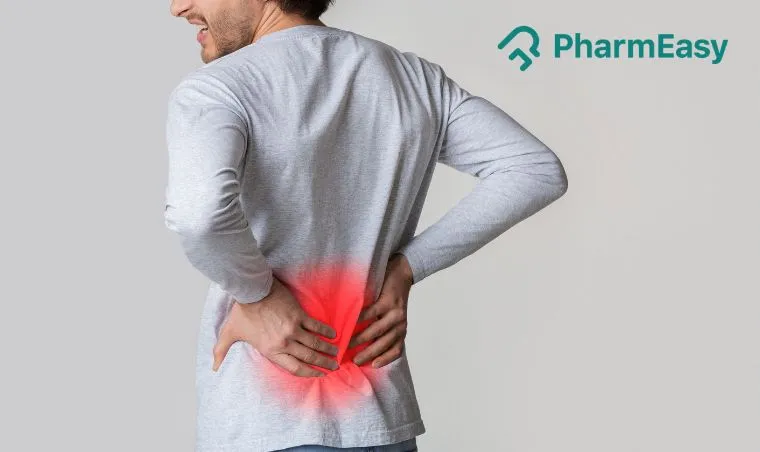Aspirin Gastro Resistant Tablet
Description
Aspirin Tablet is a commonly prescribed medicine that helps prevent blood clots. It is known as a blood thinner or antiplatelet medicine. By preventing clots from forming in the blood vessels, it helps reduce the risk of serious conditions such as heart attacks, strokes, and chest pain caused by blocked blood flow, also known as angina.
The active ingredient in the Aspirin Tablet is aspirin itself. It works by making the blood less sticky, which slows down the clotting process. This action helps to keep blood flowing smoothly through the arteries and lowers the chance of a clot that could block the blood supply to the heart or brain.
Other tablets contain aspirin and work in a similar way, including Eprin 75mg Tablet, Sprin 75mg Tablet, Ascad 75mg Tablet, Alpyrin 75mg Tablet, and Asa 75mg Tablet. You should only take the brand or dose that your doctor has prescribed, as the strength and suitability may vary depending on your health condition.
To get the best results while taking Aspirin Tablets, making healthy lifestyle changes is also important. Quitting smoking, limiting alcohol consumption, exercising regularly, and maintaining a balanced diet can significantly support your heart health and enhance your overall well-being.
Before you begin using Aspirin Tablets, make sure your doctor knows about your full medical history and any other medications or supplements you are taking. Take the tablet exactly as advised by your doctor, usually once daily with food to reduce stomach upset. Do not miss any doses, and never stop or change your treatment without consulting your doctor first.
Product Summary
| Offer Price | ₹85.88 |
| You Save | ₹15.16 (15% on MRP) |
| Contains | Aspirin / Acetyl Salicylic Acid(75.0 Mg) |
| Uses | To prevent heart attack, stroke |
| Side effects | Swelling, fainting, difficulty in swallowing, rashes, redness |
| Therapy | ANTI-PLATELET |
Uses
Contraindications
- If you are allergic to acetylsalicylic acid or any of the ingredients of the Aspirin tablet.
- If you have bleeding disorders or episodes of unusual bleeding.
- If you have a history of ulcers in the stomach or small intestine.
- If you have gout, a joint disorder characterized by pain, stiffness and tenderness in joints.
- If you have a severe liver or kidney problem or dysfunction.
- If you are pregnant (last three months) or are breastfeeding.
- If you are taking medicines for cancer or rheumatoid arthritis (such as methotrexate).
Side effects
- Indigestion
- Increased risk of bleeding
- Hives
- Difficulty in breathing
- Rashes, redness and wheezing
Precautions and Warnings
Pregnancy
Breast Feeding
Driving
Alcohol
Other General Warnings
- You have a planned surgery or had surgery recently, as there is a risk of bleeding.
- You have uncontrolled hypertension have a history of ulcers in your stomach or intestine, or taking medicines which can cause stomach ulcers, like steroids.
- You experience unusual bleeding when on this medicine.
- You are suffering from asthma.
- You have kidney or liver disease, or you are elderly.
- You experience an allergic reaction after taking this medicine.
- You are on any medications or supplements.
- You are suffering from gout or you have heavy or prolonged menstrual bleeding.
- You are taking antidiabetic medicines.
- You are pregnant, planning pregnancy or breastfeeding.
- It should not be used in children below 16 years of age.
Directions for Use
Storage and disposal
- Store Aspirin tablets in a cool and dry place, protected from direct sunlight, moisture and heat.
- Keep it away from children and pets.
- Discard any unused medicine properly. Do not flush it in the toilet or throw it into the drain.
Quick Tips
- Aspirin Tablet is an antiplatelet medicine (blood thinner). It is used to prevent the formation of blood clots.
- Before starting treatment with Aspirin Tablets, be sure to provide your doctor with a complete account of your medical history.
- It's best to take this medicine with food to prevent stomach upset. Avoid missing any dose of the Aspirin Tablet.
- Aspirin is unsafe during pregnancy. Thus, expecting mothers should avoid taking it unless their doctor specifically advises them to. The baby may experience issues with the heart or kidneys after taking this medication....
Dosage
Overdose
Missed a Dose
Mode of Action
How Does It Work?
Interactions
Interactions with other medicines
- Some medicines can affect the way Aspirin tablet works or this medicine itself can reduce the effectiveness of other medicines taken at the same time.
- To avoid any possible interactions, tell your doctor about all the medicines, supplements, or herbals you are currently taking or might take.
- Especially, if you are taking medicines to treat high blood pressure, heart failure, blood thinners, anti-infectives, anti-diabetics, anti-asthmatics, pain killers, immunomodulatory medicines or medicines for brain-related disorders....
- Concomitant use of methotrexate (used to treat certain types of cancer) with aspirin should be avoided.
- Aspirin can reverse the effect of probenecid (used to treat gout). Hence, this combination should be avoided.
Interactions with food items
- Take with food or milk to reduce the risk of stomach upset, irritation, or ulcers. Aspirin can irritate the stomach lining, especially when taken on an empty stomach.
- Avoid alcohol while taking the Aspirin Tablet, as it increases the risk of stomach bleeding and liver damage. If you drink alcohol, talk to your doctor about safe limits.
- Limit caffeine if you are sensitive to it, as both aspirin and caffeine can sometimes increase heart rate or cause nervousness when taken in large amounts.
- Be cautious when taking high-dose vitamin C (ascorbic acid) or iron supplements with Aspirin Tablet, as they may cause stomach irritation.
- Avoid foods or drinks high in sodium bicarbonate (like some antacid drinks), as they may affect how Aspirin is absorbed in the stomach.
Content Details
Dr. Nikita Toshi
BDS (Bachelor of Dental Surgery), WHO FIDES member
Dr. Ritu Budania
MBBS, MD (Pharmacology)
Frequently Asked Questions (FAQs)
Q: What is the difference between Aspirin and Disprin?
Q: Can Aspirin be taken for headaches, toothache and muscle aches?
Q: Can I take an Aspirin tablet for pain?
Q: What is an Aspirin tablet?
Q: What are the precautions I need to follow while taking the Aspirin tablet?
Q: Does Aspirin tablet cause acidity?
Q: Is Aspirin tablet a blood thinner?
Q: When should I take an Aspirin tablet?
Q: Can I take an Aspirin tablet for a stomach ache?
Q: Can I use Aspirin tablet for pimples?
Q: Can I take Aspirin with ibuprofen?
Q: Can Aspirin cause stomach bleeding?
Q: Is Aspirin safe for lactating mothers?
Q: What is the dose of Aspirin tablet?
Q: Can I stop taking Aspirin on my own?
Q: What is Aspirin Gastro-Resistant Tablet used for?
Q: What is the difference between dispersible aspirin and gastro-resistant aspirin?
Q: What is the difference between Aspirin Gastro-Resistant, regular Aspirin, and Clopilet?
Q: What is the difference between Omeprazole Gastro-Resistant and Aspirin Gastro-Resistant?
References
- Aspirin 75mg tablets - Summary of Product Characteristics (SmPC) - (emc) [Internet]. Medicines.org.uk. 2022 [cited 08 August 2022]
- Aspirin [Internet]. Ncbi.nlm.nih.gov. 2022 [cited 08 August 2022]
- Aspirin: low dose to prevent heart attacks and stroke [Internet]. nhs.uk. 2022 [cited 08 August 2022]
- Salicylic Acid (Aspirin) - StatPearls - NCBI BookshelfArif H, Aggarwal S. Salicylic Acid (Aspirin) [cited 24 Jan 2025].
- Aspirin: Uses, Interactions, Mechanism of Action | DrugBank OnlineDiphenhydramine (DB00945) [Internet]. Edmonton (AB): DrugBank; [cited 24 Jan 2025]
Did you find this medicine information helpful?
Please rate your experience



















